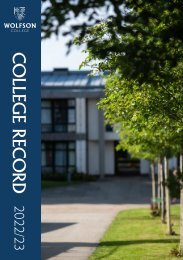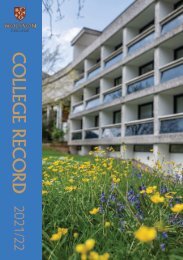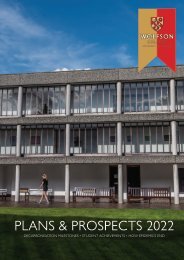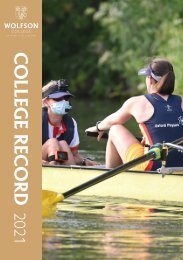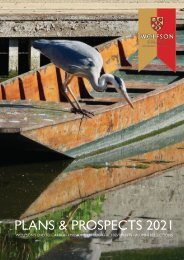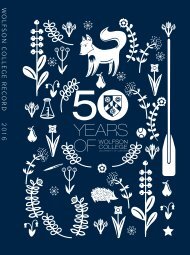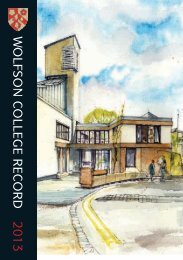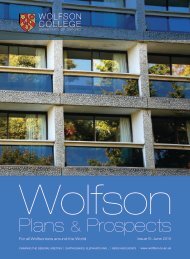Create successful ePaper yourself
Turn your PDF publications into a flip-book with our unique Google optimized e-Paper software.
THE RECORD<br />
engaging expositors who ever lived.<br />
He is survived by his Swedish daughter<br />
Gunnela and her children and<br />
grandchildren.<br />
Henry Hardy (HF)<br />
Michael Metcalf<br />
(1933-2018)<br />
David Michael Metcalf, numismatist, born<br />
8 May 1933; died 25 October 2018.<br />
Michael Metcalf, who has died aged 85,<br />
understood the quantitative significance of<br />
medieval coins long before historians or<br />
other numismatists appreciated it.<br />
His detailed study in the 1960s of the<br />
coins of Offa, the eighth-century king<br />
of Mercia, enabled him to assert that<br />
these coins were struck in much greater<br />
numbers than anyone had realised. This<br />
in turn suggested that early Anglo-Saxon<br />
coins were far too numerous to have<br />
been reserved for the use of an elite.<br />
Instead the numbers argued for a much<br />
greater degree of Dark Age monetisation<br />
than previously assumed. Unsurprisingly,<br />
the established orthodoxy took some<br />
time to come to terms with this, and the<br />
ensuing debates ruffled feathers. One<br />
particular exchange in Oxford in 1966<br />
was sufficiently robust to have been<br />
reported in the national press.<br />
With characteristic grit, Michael resisted<br />
the vigorous criticism of the most<br />
influential scholars, until the advent of<br />
the metal detector in the 80s began to<br />
confirm Michael’s arguments through<br />
the discovery of very large numbers of<br />
medieval coins from all over the country.<br />
Metal detecting was itself then shunned<br />
by archaeologists, who, reasonably enough,<br />
feared the destruction of important<br />
sites, but gradually a more positive attitude<br />
to responsible metal detecting developed.<br />
Nowadays the Portable Antiquities Scheme<br />
records thousands of coin finds reported<br />
by detectorists every year, and the degree<br />
of monetisation in medieval England is no<br />
longer doubted.<br />
The evidence of single coin finds was also<br />
used by Michael to map and quantify the<br />
early Anglo-Saxon gold coins (thrymsas) and<br />
silver pennies (sceattas) of the seventh and<br />
eighth centuries, resulting in his three-volume<br />
work Thrymsas and Sceattas in the Ashmolean<br />
Museum (1993–94). He had energetically<br />
collected the new finds emerging in the 80s<br />
to make the collection of the Ashmolean<br />
Museum in Oxford, where he was Keeper<br />
of the Heberden Coin Room (1982–98), a<br />
leader in this field.<br />
While Michael located the principal areas<br />
in which each type was struck and used, he<br />
also demonstrated that over a quarter of<br />
the English money stock consisted of similar<br />
silver pennies struck in the Low Countries,<br />
testifying to a huge balance of payments<br />
surplus probably attributable to wool exports<br />
as early as the eighth century. Anglo-<br />
Continental trade links were fundamental<br />
to English wealth from at least the eighth<br />
century until our own times.<br />
He also applied his spatial awareness and<br />
statistical skills to the late Anglo-Saxon<br />
coinage from King Edgar’s coinage reform of<br />
973 to the Domesday Book survey of 1086.<br />
This period featured repeated reminting of<br />
the entire national currency, as well as the<br />
export to Scandinavia of huge numbers of<br />
coins as Danegeld. The coin hoards found<br />
above all in Sweden provide numerically<br />
impressive samples, though comparison with<br />
English hoards is essential.<br />
Moreover Michael analysed more than<br />
600 English single finds from this period<br />
96<br />
COLLEGE RECORD <strong>2019</strong>



